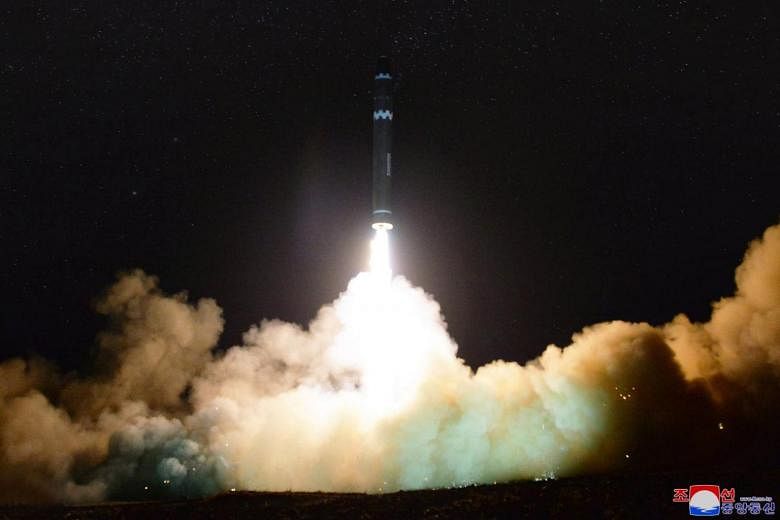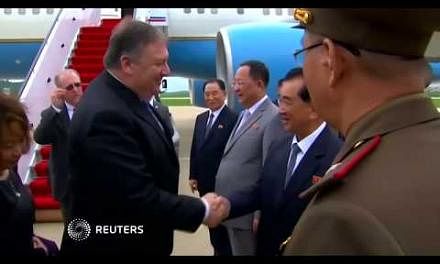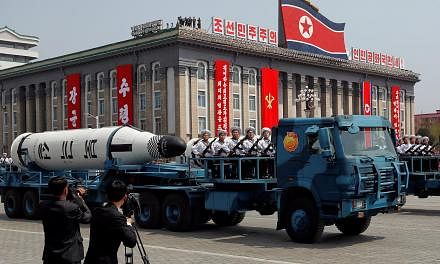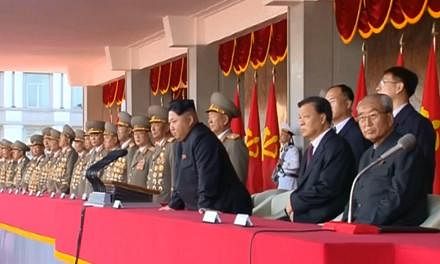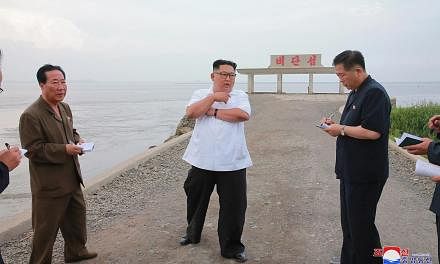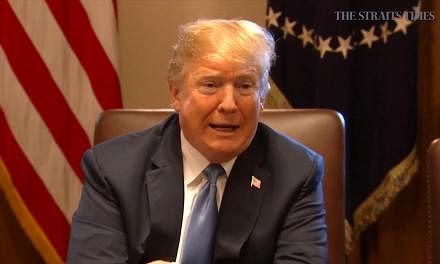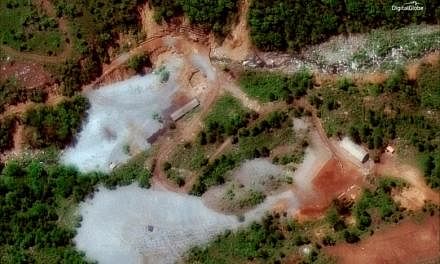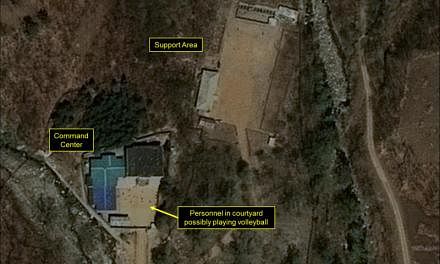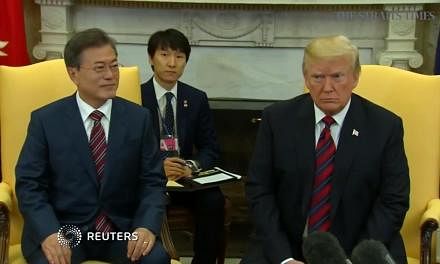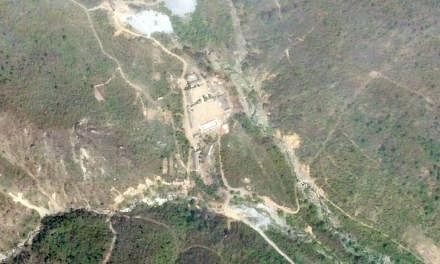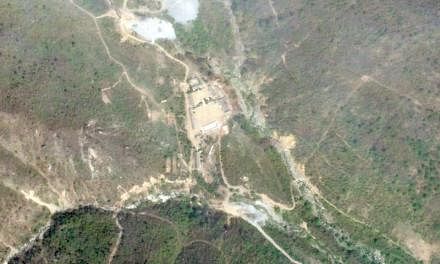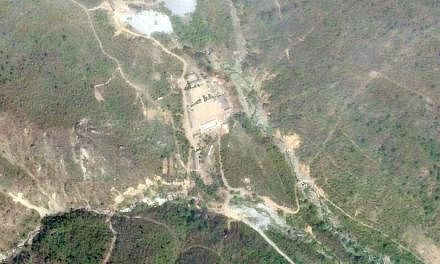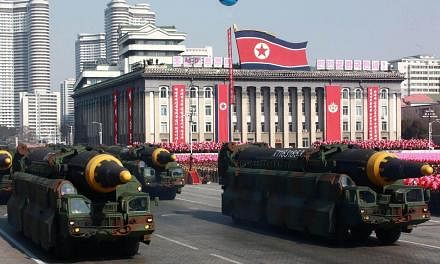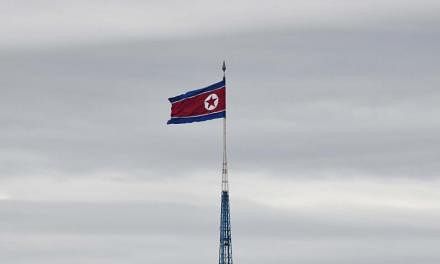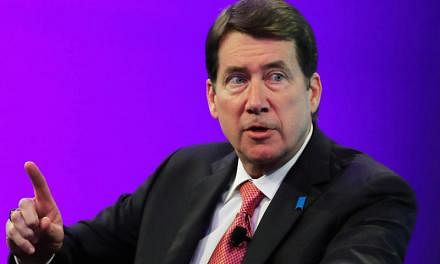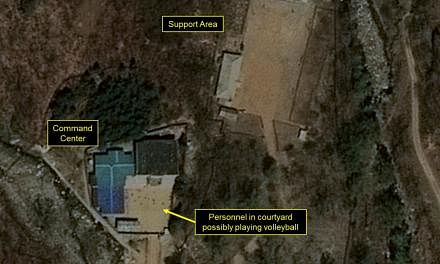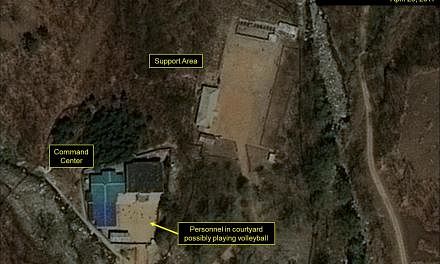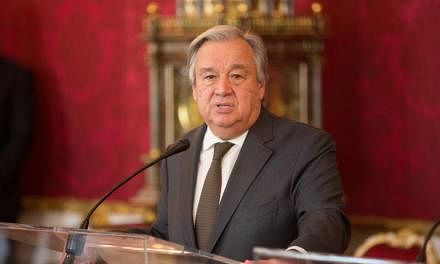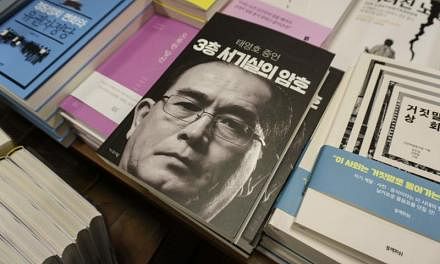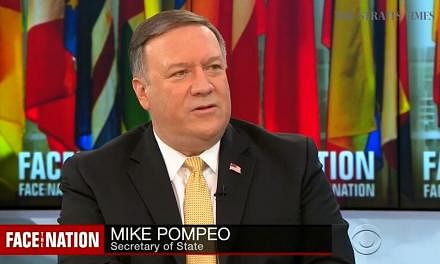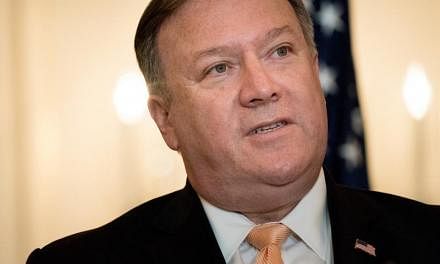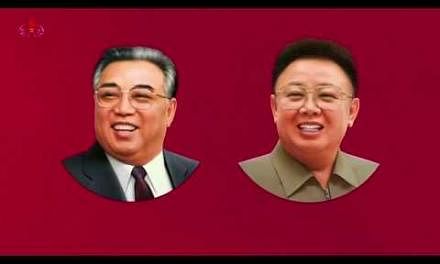WASHINGTON (AFP) - North Korea's development of a missile capable of hitting the United States could present an opening for dialogue, some experts argue, if Washington can accept Pyongyang as a nuclear power.
If Kim Jong Un feels he has succeeded in his quest to build a weapon to deter any attempt to overthrow his regime, he may be open to talks to end his dangerous stand-off with the United States.
But, so far, President Donald Trump's administration has continued to insist that the North cannot be permitted to deploy its missiles and has vowed to ramp up economic sanctions still further.
"We have a long list of additional potential sanctions, some of which involve potential financial institutions," Secretary of State Rex Tillerson said, insisting the pressure strategy remains viable.
"As a diplomat, we keep working on it every day," he said.
Tillerson has been the main US champion of a diplomatic resolution to the crisis, hoping that economic and diplomatic isolation will force Kim to agree to talks to negotiate his disarmament.
The diplomatic route has borne fruit: Several countries have cut relations with the North, the UN Security Council has approved tougher sanctions and China has promised to enforce them.
But Kim has not blinked. He continues to trade public insults and threats of war with Trump, and on Tuesday he defiantly tested a powerful intercontinental missile in defiance.
In short, as Tillerson's spokesman Heather Nauert said on Wednesday (Nov 29): "North Korea is showing no interest in sitting down and having conversations with the world at this point." Privately, however, some US diplomats admit Kim has already got what he wants, a credible nuclear deterrent, and many independent observers say Washington will just have to live with it.
"The North Koreans have always been willing to talk, they're just not willing to talk about giving up their nuclear weapons," said non-proliferation expert Jeffrey Lewis of the Middlebury Institute.
"Having got this far they're not going to talk about that," he said "We can talk about deterrence, stability, reducing tensions, resolving security issues, about living with a nuclear North Korea."
Washington is not yet ready to do this. In the aftermath of Tuesday's test Trump and Tillerson hit their phones to reassure allies of their resolve and press China for greater efforts.
Oil embargo
At emergency talks held on Thursday (Nov 30) to discuss the North Korean issue, the US again called on the international community to cut all diplomatic and trade ties with North Korea - including Chinese oil shipments to Pyongyang after Wednesday's (Nov 29) missile test by the isolated regime.
"We call on all nations to cut off all ties with North Korea," Washington's ambassador to the United Nations, Nikki Haley, told her fellow envoys.
Haley said Trump had called Chinese President Xi Jinping and urged him to "cut off the oil from North Korea.
"That would be a pivotal step in the world's effort to stop this international pariah," she said, issuing a stern warning to Kim. "If war comes, make no mistake: The North Korean regime will be utterly destroyed," she said.
But will more sanctions bring North Korea to its knees?
As Abraham Denmark, director of the Asia program at the Kissinger Institute, wrote on Twitter: "US still has a lot of options to respond to the ICBM test: Oil embargo, maritime interdiction, ban on foreign labour, secondary sanctions, deepen diplomatic isolation, strengthen military posture in region.
"Will these bring complete, verifiable, and irreversible dismantlement of the DPRK's nuclear program? Doubtful," he wrote.
"If Pyongyang truly believes it has completed developing and demonstrating a credible nuclear deterrent, this may be an opening for diplomacy."
China, the North's giant neighbour and main trading partner, is reluctant to take any measures that would destabilise the regime and lead to chaos, refugees or a US occupation force on its border.
And in any case, it is far from clear that sanctions could ever convince Kim - who has made a strategic decision that only nuclear weapons can protect his rule and win his regime respect.
As Lewis explains, years of sanctions have failed to prevent Pyongyang from developing bombs and missiles, and they won't change the mind of a leader who fears a grisly fate if overthrown.
"The thing the North Koreans are afraid of is ending up like Saddam or Gaddafi - and there are no sanctions in the world that are worse than that!" he told AFP, referring to late Iraqi strongmen Saddam Hussein and former Libyan dictator Muammar Gaddafi.
If sanctions won't work, and Washington is not prepared to admit that Kim has won his bet on becoming a nuclear power, then might Trump make good on his threat to rain "fire and fury" on his foe?
The option remains on the table, and the United States continues to train with South Korea forces despite calls from China and others for a freeze on exercises as a gesture of reassurance.
But privately, US officials and diplomats in Washington admit that the options for confronting a nuclear-armed North Korea are limited, with any strike likely to trigger a war that could leave millions dead.
